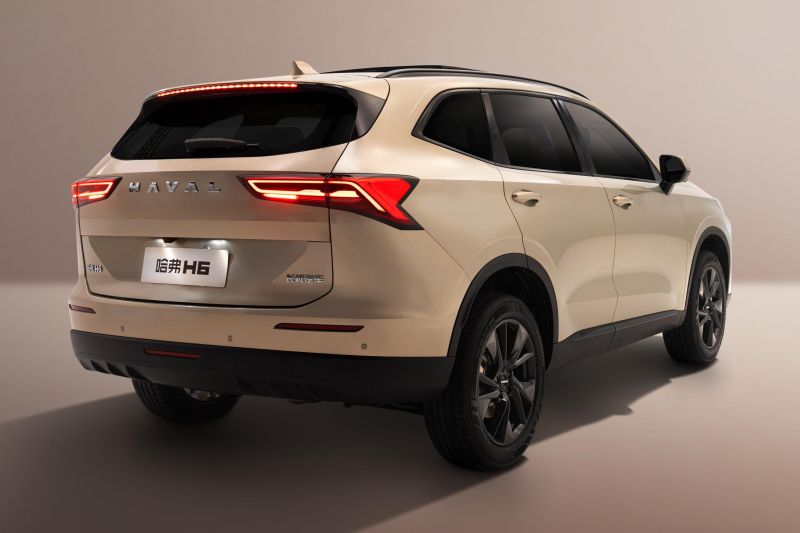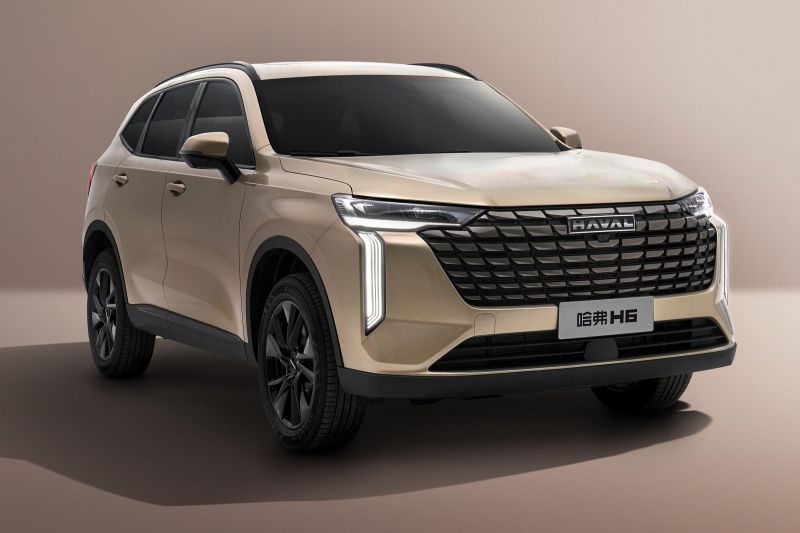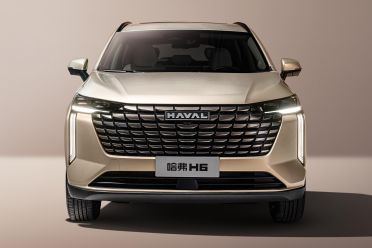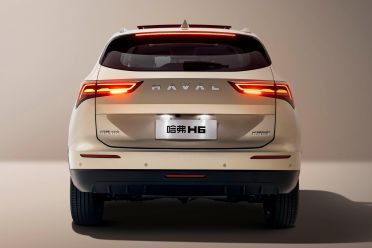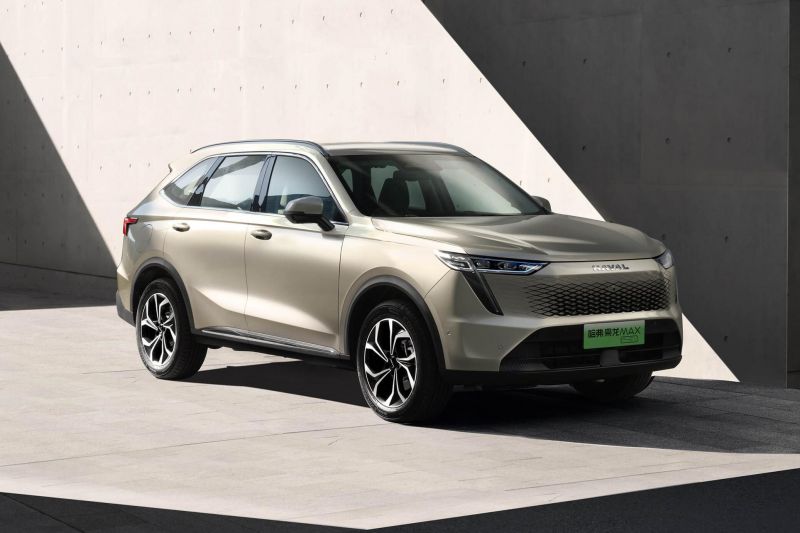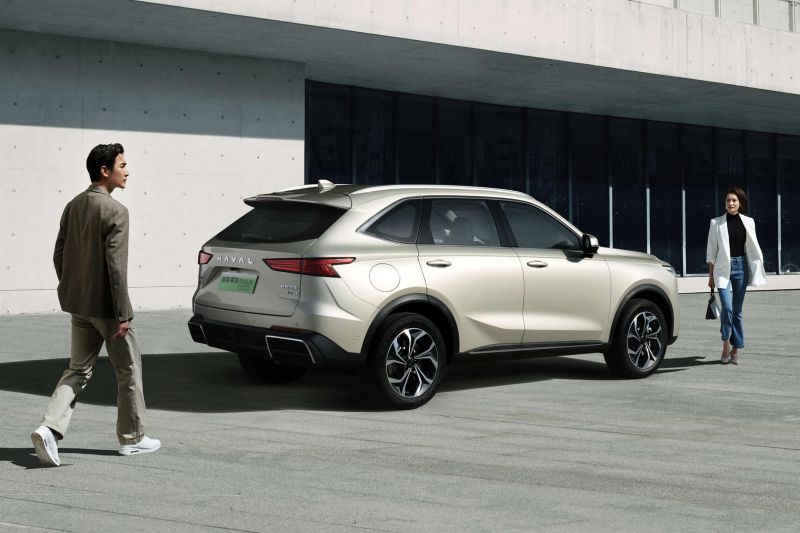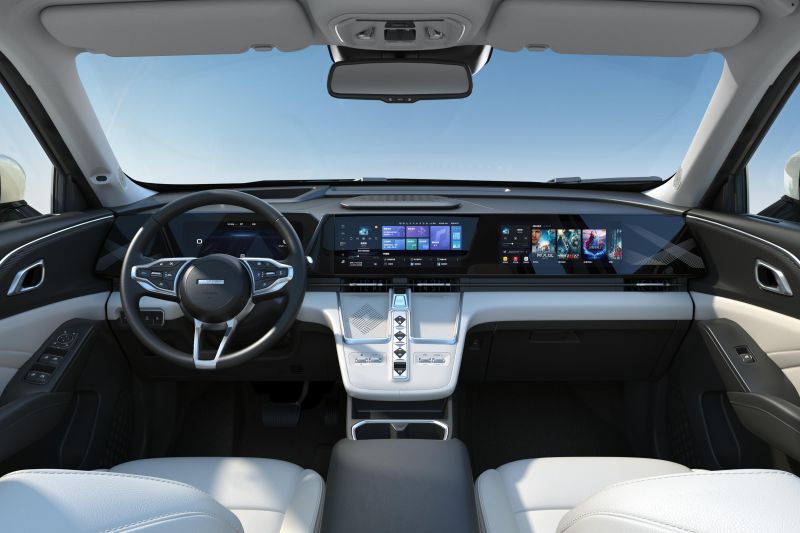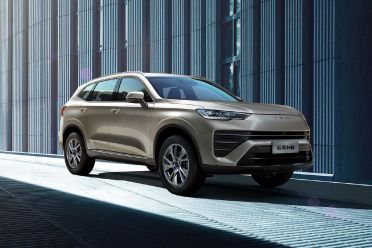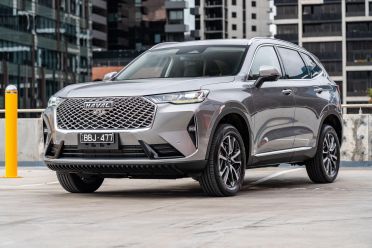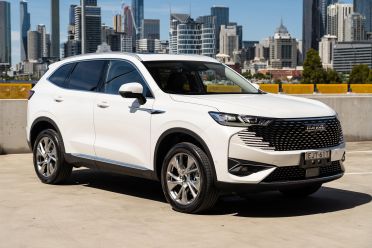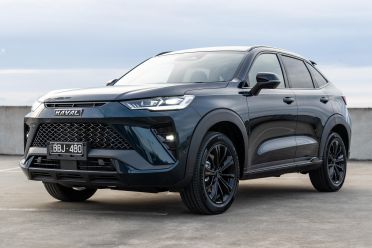GWM Haval H6 gets another facelift, not for Australia

[ad_1]
GWM has revealed a mid-life update for its Haval H6 mid-sized SUV in China, but don’t expect it to come to Australia.
Instead, CarExpert understands the current Haval H6 will be replaced either late in 2024 or early in 2025 with the new Haval Xiaolong Max, a new global SUV for the brand offering plug-in hybrid power.
For China, the updated Haval H6 adopts a new face with vertical LED daytime running lights – if largely unchanged headlights – and a grille consisting of dozens of metal-look rectangle trim pieces, rather reminiscent of the grille on the Hyundai Palisade.
Down back, the current model’s full-width LED light bar – which makes it easy to spot at night – has been replaced with two separate, more conventional tail light clusters.
The Haval H6 also appears to be finished in a new colour, and while official interior photos have yet to be released, in one leaked image we can make out what appears to be a larger infotainment touchscreen.
Unusually, a facelifted Haval H6 was revealed in July 2023, but doesn’t appear on GWM’s Chinese website.
This also appeared to have ditched the rear light bar, but features a dramatically different front end with only a pair of slim lower openings and a largely body-colour face.
The Haval H6 was once one of the five best-selling vehicles in China, but fell to ninth place in 2022 and dropped out of the top 10 entirely in 2023.
It appears GWM may be trying to give the model a boost to take it through to the end of its life.
The current, third-generation model debuted in 2020, arriving in Australia in 2021 to replace the 2015-vintage model known in China as the H6 Coupe; we skipped the second-generation model.
The new Xiaolong Max, expected to replace the H6 here, has thus far only been introduced with plug-in hybrid power.
This vehicle was revealed 12 months ago at the 2023 Shanghai motor show as a “next-gen medium SUV” and “strategic model” for the brand, set for introduction to global markets.
It measures 4758mm long, 1895mm wide and 1725mm tall on a 2800mm wheelbase – 103mm longer, 9mm wider and 1mm taller than the current GWM Haval H6 on a 62mm longer wheelbase.
That makes it only incrementally smaller than a Hyundai Santa Fe, though there are only two rows of seating.
When the battery runs out, the car will function as a normal hybrid and GWM claims it has a more EV-like drive feel than other plug-in hybrid (PHEV) SUVs.
It features an 85kW/140Nm 1.5-litre Atkinson cycle four mated with a two-speed hybrid transmission and 70kW/100Nm front and 150kW/350Nm rear electric motors for total system outputs of 205kW and 585Nm.
There’s a 20kWh battery that can be charged at up to 33kW on DC power, while claimed WLTC electric-only range is 83km with fuel consumption of 5.5L/100km.
There’s a “smart system” that can switch between nine different driving modes based on real-time road conditions, plus GWM’s Intelligent Torque Vectoring Control.
In city driving, the Xiaolong Max will switch between pure electric two-wheel drive, series hybrid mode, and first-gear direct drive mode to avoid using the petrol engine. At high speeds, it will use the second-gear direct drive mode to maximise efficiency.
Brake energy recuperation also features in the system, while there’s vehicle-to-load technology that allows you to run external appliances with up to 3.3kW of external discharge.
Inside the Xiaolong Max there’s a 12.3-inch digital instrument cluster, a 12.3-inch infotainment touchscreen, and an additional 12.3-inch touchscreen for the passenger. A 10-inch head-up display is available.
Available features include a panoramic sunroof, surround-view camera and semi-autonomous parking assist.
A full suite of active safety and driver assists is also available which includes autonomous emergency braking, lane keeping and centring aids, front cross-traffic assist and traffic jam assist.
The current Haval H6 doesn’t offer plug-in hybrid power in Australia, though such a powertrain is offered in other markets.
Here, it’s offered with a choice of a turbocharged 2.0-litre four-cylinder engine with 150kW and 320Nm, or a turbo 1.5-litre hybrid four with total outputs of 179kW and 530Nm.
The Haval H6 also offers different front-end styling depending on whether it uses a petrol or petrol-hybrid powertrain, while the H6 GT is a coupe SUV sibling with different styling front and rear.
It’s unclear what will replace the petrol-powered Haval H6 in Australia, given the Xiaolong Max is (at least for now) PHEV-only.
The also mid-sized Haval Second-Generation Big Dog has been spied testing locally.
MORE: Everything GWM Haval H6
[ad_2]
